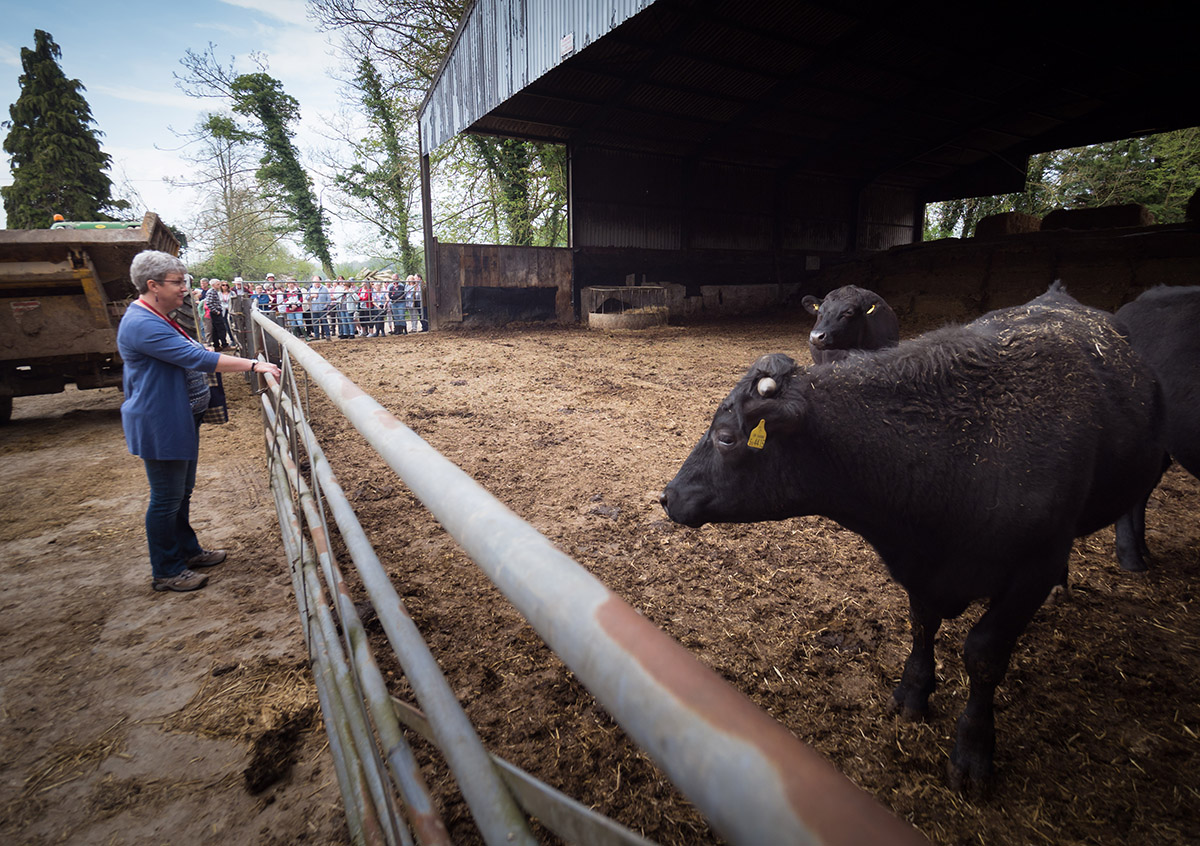Sarum College will embark on a major programme to enhance teaching on ethics by exploring the interface of science and theology, thereby equipping those training for ministry to engage with science and new scientific developments as part of their future ministry.
This work is funded by a grant to promote science-engaged theology from the ‘Science for Seminaries’ programme run by research project Equipping Christian Leadership in an Age of Science (ECLAS).
The initiative focuses on three areas of scientific endeavour which integrate with Sarum’s existing Rural Training Pathway topics, and offers all ministry students the opportunity to study climate change as a key topic for the future of humanity.
‘Public ministry in the 21st-century requires flexibility, resilience and an ability to enable us to understand the wonder and complexity of our world,’ says The Revd Canon Professor James Woodward, Sarum College Principal.
‘Too often science has been pitched against religion as a competing framework within which we understand ourselves and the shape of our human flourishing. The Science for Seminaries grant will enable us to develop our learning and teaching in the key areas of the environment, artificial intelligence and why life science can enable us to understand the possibilities of our life together in community.”
The project is founded on the premise that it is essential for those who will have future roles in public ministry, both lay and ordained, to be equipped to be able to understand and interpret scientific developments for themselves, with their congregations and the wider public.
The project will be led by Canon Jill Hopkinson, Tutor in Rural Ministry and Director of Studies for the Sarum Centre for Formation in Ministry. Hopkinson is a rural specialist with active teaching and research interests in ministry and mission in rural communities, rural sociology, practical theology and the common good. Her doctoral research was in agronomy and plant nutrition and she continues to be interested in current research in agriculture, food and environmental sciences.
Other Sarum faculty and external teaching staff directly involved in shaping and teaching the curriculum are Revd Paul Burden, Director of Contextual Learning and Coordinator for the Sarum Centre for Formation in Ministry; Dr Eleanor McLaughlin, Programme Leader in Theology, Imagination and Culture, Sarum College; Dr Karen O’Donnell, Programme Leader in Contemporary Spirituality, Sarum College; Dr Jayme Reaves, Director of Academic Development, Sarum College; and Professor Christopher Southgate, Professor of Christian Theodicy, Department of Theology and Religion, University of Exeter.
Sarum College was one of nine TEIs to receive a Science for Seminaries grant. These are the London School of Theology, Nazarene Theological College, Ripon College Cuddesdon, Regents Theological College, Cranmer Hall, St Augustine’s College of Theology, Wycliffe Hall, and the University of Aberdeen’s School of Divinity.
Further details
Project leader
Canon Dr Jill Hopkinson, Tutor in Rural Ministry and Director of Studies for the Sarum Centre for Formation in Ministry. Hopkinson is a rural specialist with active teaching and research interests in ministry and mission in rural communities, rural sociology, practical theology and the common good. Her doctoral research was in agronomy and plant nutrition and she retains an active interest in current research in agriculture, food and environmental sciences.
The Rural Ministry Pathway
This pathway within ordained ministry formation benefits from the strengths of the blended learning approach and participation in the Sarum community. It weaves the knowledge needed for rural ministry into standard modules, enabling issues specific to rural multi-church contexts to be developed throughout formation. The pathway also offers dedicated modules in rural mission and leadership in rural ministry. This follows the DipHE pathway, and rural modules are also available to students on the CertHE pathway.
Students attend to the narratives of living and working in rural areas; creative mission, fresh expressions of church and church growth; inter-generational ministry in numerically small groupings; developing discipleship in small congregations; collaborative leadership in multi-church groups; and self-care and resilience in ministry.
Equipping Christian Leadership in an Age of Science (ECLAS)
ECLAS is a project led by St John’s College, Durham University, with the University of York and Mission and Public Affairs at the Church of England. Its goal is to equip Christian leadership with the tools to engage with cutting-edge science, the better to inform their personal faith and public policy work. Its directors include the Revd Prof David Wilkinson and physicist Prof Tom McLeish.
ECLAS and the Science for Seminaries grants are funded by the Templeton Religion Trust.

Leave a Reply